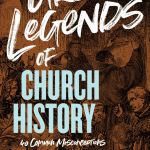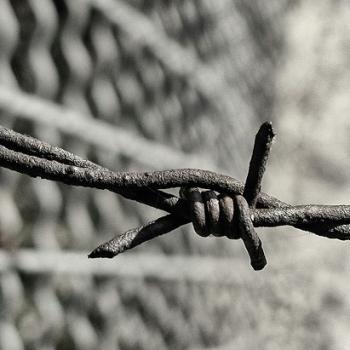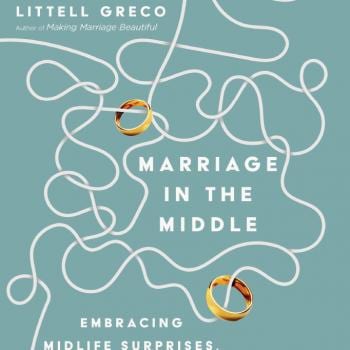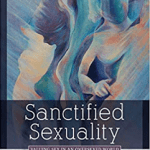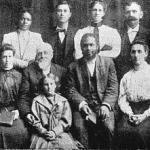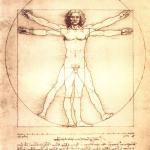A Covenant Made in Paradise
 I’d like to flesh (haha) my answer out a little bit here. The inaugural marriage covenant happened in the Garden of Eden, so we go to Genesis 2:18, 20–24 for direction:
I’d like to flesh (haha) my answer out a little bit here. The inaugural marriage covenant happened in the Garden of Eden, so we go to Genesis 2:18, 20–24 for direction:
“The Lord God said, “It is not good for the man to be alone. I will make an ezer kenegdo for him. . . . But for Adam no ezer kenegdo was found. So the Lord God caused the man to fall into a deep sleep; and while he was sleeping, he took one of the man’s ribs and then closed up the place with flesh. Then the Lord God made a woman from the rib he had taken out of the man, and he brought her to the man.
The man said,
“This is now bone of my bones
and flesh of my flesh;
she shall be called ‘woman,’
for she was taken out of man.”That is why a man leaves his father and mother and is united to his wife, and they become one flesh. Adam and his wife were both naked, and they felt no shame.”
In the first creation story, God declared:
So God created mankind in his own image, in the image of God he created them; male and female he created them. God blessed them and said to them, “Be fruitful and increase in number; fill the earth and subdue it. Rule over the fish in the sea and the birds in the sky and over every living creature that moves on the ground.” (Gen. 1:26–28)
From these two passages, we observe several points:
- God created both men and women in his image. They are equal in nature. Yet being described by their sexuality denotes that they are also different.
- The term ezer kenegdo denotes a person of equal or greater strength. Many times in the Old Testament, the term refers to God coming to “help” the Israelites in battle. The description does not compare well to our English definition of helper, which assumes a position of lesser rank, ability, or strength. Some scholars propose the translation “power or strength equal to” as more accurate. Either way, the woman as ezer kenegdo is not a man’s assistant but his partner. This applies to marriage, friendship, or any other sort of male-female relationship. Together, they can fulfill their mutual calling to procreate and to exercise dominion over the earth.
- When God brings the woman to the man, Adam breaks out into poetry. He recognizes that, finally, someone like him now exists to be his partner: “This is now bone of my bone, flesh of my flesh…” This statement reflects how the woman is similar to the man.
- Marriage, created in the Garden, joined a man and a woman together in a harmonious, joyful, complementary union. Nowhere in Genesis 1 or 2 does the text mention or even infer that one outranks the other.
Unequally Yoked
But of course, “the course of true love never did run smooth.” The perfect marriage was ruined one chapter later when the first couple broke their own S/V covenant with God by rebelling against his one command. The result of breaking fellowship with God? The man and woman broke fellowship with one another. Their future relationship, and that of all their descendants, would be marred by conflict. In Genesis 3:16, God described to the woman how her relationship with Adam would be different: “your desire will be for him and he shall rule over you.”
Only after the fall of humanity do we see domination rather than mutual dominion. Sin led to a patriarchal, male-centered society in which marriage became economic and power-centered: fathers giving daughters, men taking wives, women counted among a man’s property.
That a power difference exists between men and women is a result of the fall, not part of God’s created design. Do we as Christians intentionally advance a sin pattern? If so, your marriage may resemble a S/V covenant. Yes, because we are sinners, we will fall into conflict. But God did not intend a power struggle to define and describe marriage.
Jesus came to right the wrongs, to renew and resurrect the original creation. The Suzerain, rather than meting out judgment on a wayward vassal, rescued that rebellious vassal (us) from its own misguided, evil choices. In marriage, would we not move toward the Edenic ideal rather than perpetuate the fallen pattern of male domination? A blessed alliance between men and women captures the best of our strengths—neither “in charge,” neither under the other’s authority, but side by side we work to bring God’s kingdom to earth. We need each other.


